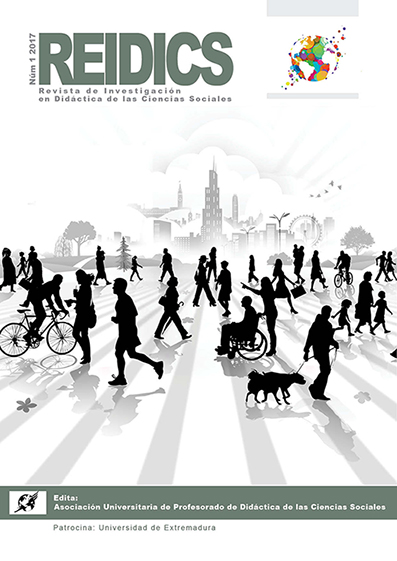Know, know to do, know to be a teacher
DOI:
https://doi.org/10.17398/2531-0968.01.54Keywords:
Curriculum design; educational research; coaching; teacher training; teaching social sciencesAbstract
The Master of initial teacher training of secondary school in Spain is a space and an exceptional time to experience and generate educational synergies that are transferred beyond it. An opportunity to put into practice coherent and consistent training processes with the academic postulates that insistently educational research communicates to us as valid, useful, alive but not always applied in the classroom or with students. The theoretical methodological perspective of this article develops the reflexive practice in the initial formation of the job of teaching in the secondary stage through a qualitative paradigm of educational research through the History of Life, among other instruments and oriented with practices of educational coaching. It focuses on the teaching of future professionals of Social Sciences proposing situations that deepen the competence of self-reflection and shared dialogue between equals, that allow to develop empathic concern, interest and knowledge of more ways to teach and learn that those who already had lived to produce its teaching model. It is concluded that although the tasks are expensive in time and personal involvement. The goodness of the implementation of these favors a reflexive attitude that helps the teachers to make explicit the fundamentals that guide their way of perceiving and interpreting the teaching-learning process and will give them flexibility in the face of contradictions or unforeseen events in their future career.
Downloads
Published
Issue
Section
License
Copyright (c) 2024 Azucena Hernández-Sánchez

This work is licensed under a Creative Commons Attribution-NonCommercial-ShareAlike 4.0 International License.
Aquellos autores/as que tengan publicaciones con esta revista, aceptan los términos siguientes:
- Los autores/as conservarán sus derechos de autoría y garantizarán a la revista el derecho de primera publicación de su obra, el cual estará simultáneamente sujeto a la Licencia de reconocimiento de Creative Commons 4.0 BY-NC-SA que permite a terceros compartir la obra siempre que se indique su autor y su primera publicación en esta revista.
- Los autores/as podrán adoptar otros acuerdos de licencia no exclusiva de distribución de la versión de la obra publicada (p. ej.: depositarla en un archivo telemático institucional o publicarla en un volumen monográfico) siempre que se indique la publicación inicial en esta revista.
- Se permite y recomienda a los autores/as difundir su obra a través de Internet (p. ej.: en archivos telemáticos institucionales o en su página web) antes y durante el proceso de envío, lo cual puede producir intercambios interesantes y aumentar las citas de la obra publicada. (Véase El efecto del acceso abierto).
- Los autores y autoras han respetado la política de autoría de esta revista.




